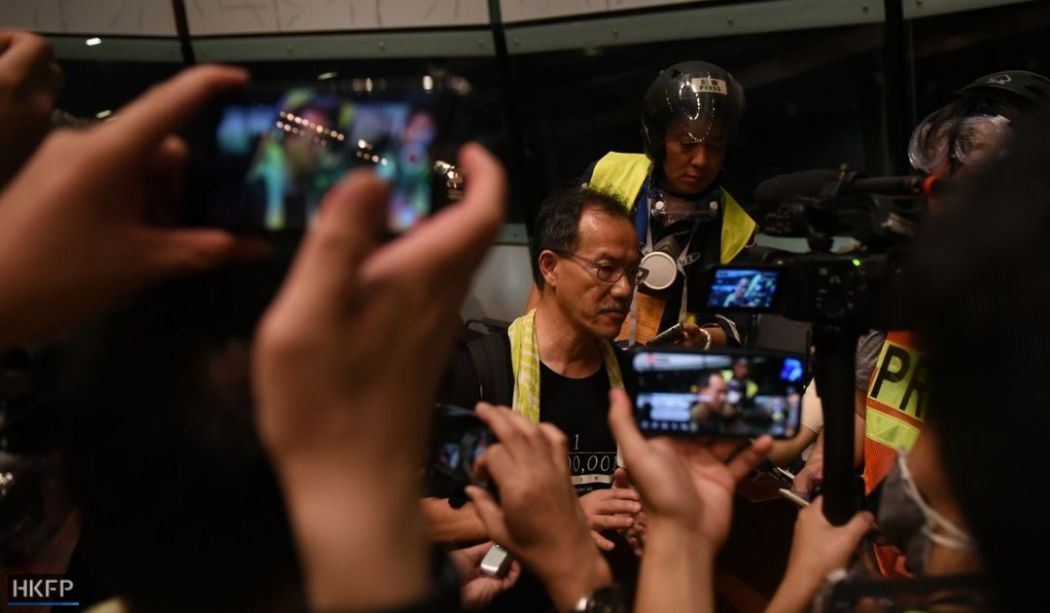By Kenneth Ng
The consistently peaceful mass demonstrations for democracy in Hong Kong have won international acclaim. But this record was somewhat tarnished by the storming of the legislature by protesters in the evening of July 1.
Nevertheless, public opinion in Hong Kong society remains divided. Condemnations of violence went parallel with sympathy for the young protesters.

Some local critics, including father of democracy Martin Lee, opined that the incident was a trap prepared by Beijing and the embattled leaders of the Hong Kong government, aimed at recovering lost ground against the anti-extradition bill movement.
Observers thought it would have been easy for the police to clear the protesters before the legislature was stormed. The passiveness of the police, unlike the aggressive behaviour displayed on previous occasions, aroused suspicions that the authorities intentionally allowed the intrusion to demonise the protesters.
Martin Lee added that these are familiar tricks adopted by the Chinese Communist Party when faced with mass movements. Besides throwing piles of money to organise forces to support the government, tricky ways may include collaboration with triad gangs to infiltrate the opposition camp, cause chaos and smear the mass movement.
After taking the ethical high ground, the government can suppress the mass movement and even clear it by force. This sort of screenplay was witnessed during the Umbrella Movement in 2014 and the Mong Kok Riot in 2016.
Immediately after the storming of the legislature, Chief Executive Carrie Lam held an urgent press conference at 4am to denounce those storming the legislature as rioters. Other senior government officials, including the Commissioner of Police and Secretary for Security, quickly grasped this opportunity to denounce the violent incident.

The counterattack on the anti-extradition bill movement will be followed by high-profile arrests of protesters and intimidation of civil society, in the hope that the anti-extradition bill movement will fade away as discouraged protesters succumb to despair and helplessness.
The pro-establishment camp joined the condemnation as they thought it was a chance to win back support of their voters. Hong Kong’s Pro-Communist Party newspapers Ta Kung Pao and Wen Wei Po published much coverage, criticising protesters as rioters and blaming the incident on Apple Daily, the only one out of ten print newspapers to speak for Hong Kong people.
However, public opinion in Hong Kong society remains divided. The deep anger among Hong Kong citizens towards the chief executive extends well beyond the extradition bill to her poor governance in recent years.
Even though storming the legislature may not be acceptable to the general public, Hong Kong citizens are not necessarily going to support a government which ignores their views.
Opinion polls suggest that the government is still in trouble. A survey conducted by Ming Pao, a leading Chinese newspaper in Hong Kong, during the July 1 march, found that 76% of respondents supported future non-cooperative action, and more than 90% of respondents thought Carrie Lam should step down.
Some Hongkongers phoned into radio shows to express their support for the occupation of the legislature; comments and opinions showing sympathy to the protesters appeared on many social media sites. Many Hong Kong people understand that without the sacrifice of the young protesters who risked their personal safety on June 12 to say no to the government, the extradition bill would already have been passed.

Putting aside the government’s role in the matter, the invasion of Legco was strikingly restrained. The protesters only targeted the government; no shops, cars or passers-by were damaged or hurt. This is not what happens in Europe, America or even Japan.

